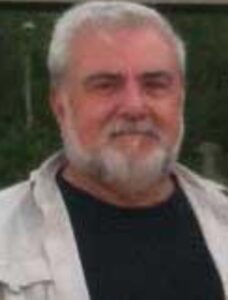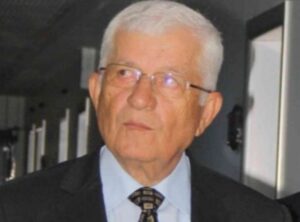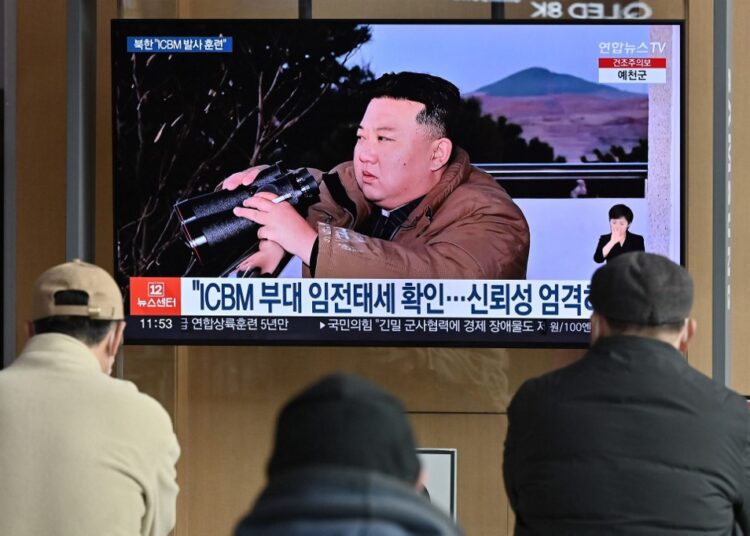Abdullah Bozkurt/Stockholm
The Turkish military secretly arranged a visit to Ankara of a North Korean general who was in charge of developing ballistic missile technology to discuss terms of cooperation and technology transfer, according to official documents obtained by Nordic Monitor.
The revelation was made by Aydın Köstem, a Turkish arms smuggler who had long worked with the Turkish military and intelligence agency, at a court hearing in Ankara in February 2023. As he tried to explain his background to a panel of judges to prove his patriotism, Köstem provided details of a secret visit by a North Korean general to Turkey in the 1990s.
He said the assignment to approach North Korea was given to him by Gen. Ahmet Çörekçi, the then-deputy chief of general staff, with whom he had been working since Çörekçi was serving as secretary of the National Security Council (MGK), the highest security body in Turkey which is also described as a shadow government.
“He invited me to meet with him when he was deputy chief of general staff, so I went to the general staff headquarters. He said they were experiencing shortcomings in the fight against terrorism and were facing problems. He asked me if I could explore where we could get weapons and ammunition that would help our troops. I said I would be happy to do it,” Köstem said during his testimony at the Ankara 28th High Criminal Court.
“I was involved in an effort to acquire other things [for the Turkish army] with a view to transferring technology from abroad. One of them was to bring a major general in charge of the North Korean missile program to Turkey. He came with special permission [from the government] by obtaining a special visa from our embassy in Beijing. I greeted him at the airport and escorted to the airport when I sent him back home,” Köstem added.
He did not provide the name of the North Korean general nor the exact date of the trip or what came out of the secret meetings he had with the Turkish generals. But given the fact that Çörekçi was the general staff’s number 2 at the time, it had to have been some time between 1993 and 1995. Çörekçi became commander of the air force in August 1995 and retired from the military two years later.
Court document that includes the revelations made by Aydın Köstem:
aydin_kösteM_north_korea
Çörekçi is part of a neo-nationalist group in the Turkish military and, like other neo-nationalists, is known for his anti-US and anti-NATO views and advocates for closer ties with Russia and China. He was one of the key players in forcing the ouster of the Refahyol government, a coalition of the political Islamist Welfare Party (RP) of Necmettin Erbakan and the center-right True Path Party (DYP) of Tansu Çiller on February 28, 1997.
In May 2012 he was arrested as part of an investigation into the 1997 events and later indicted. He was released in September 2013 pending the conclusion of the trial. In April 2018 he was convicted and sentenced to life in prison and was sent back to prison when the verdict was upheld by the Supreme Court of Appeals in July 2021. In March 2023 President Recep Tayyip Erdogan granted the 91-year-old Çörekçi amnesty, citing old age and health.
The court documents do not show what happened after the visit of the North Korean general to Turkey in the 1990s or whether there was any follow-up to that visit. Köstem did not provide any other details to the court on this secret mission. He mentioned the visit for the first time anywhere to prove that he was a patriot and loyal to the Turkish government. The court was hearing an old case concerning the murder an academic in 2002, and he and several other neo-nationalist figures were listed as suspects.

Köstem also said he was filing regular reports from Iraq in the 1980s and 1990s, when he was working for Turkish companies operating in northern Iraq. He was introduced to Çörekçi through a senior official in Turkish Foreign Ministry, and the two had maintained contact since then.
It appears that Turkey’s reaching out to North Korea has continued even during the time in office of President Erdogan, who has been increasingly vocal in expressing resentment of NATO and taken steps to undermine the unity and cohesion of the transatlantic alliance.
On October 4, 2018 the US Department of the Treasury’s Office of Foreign Assets Control (OFAC) designated Istanbul-based firm the SIA Falcon International Group, its sole owner Hüseyin Şahin and its general manger Erhan Çulha for involvement in the trade of weapons and luxury goods with North Korea.
It was simply not possible for the company and these two individuals to have operated easily and without attracting scrutiny in a weapons market that is closely regulated and subject to a rigid set of rules. Their smooth operation can only be explained by political cover provided by the Erdogan government.

Şahin and Çulha were identified by OFAC as doing business with Ri Song Un, the economic and commercial counselor at the North Korean embassy in Mongolia. Ri Song Un, also designated by OFAC, was hosted by SIA Falcon officials in Turkey in 2018 to negotiate trade deals involving weapons and luxury goods. “SIA Falcon International Group and individuals acting on its behalf are blatantly attempting to flout longstanding UN sanctions on trade in weapons and luxury goods with North Korea. The international community must not stand idly by as UN sanctions are being circumvented,” then-Treasury Secretary Steven Mnuchin was quoted as saying in OFAC press release.
When it comes to North Korea, Erdogan is also enjoying the support of an ultranationalist group led by Doğu Perinçek, whose operatives occupy key positions in the government, especially in the military, intelligence, judiciary and police. The group’s mouthpiece, the Aydınlık newspaper, has consistently endorsed North Korea against the United States, which is in line with its traditionally staunch anti-Western stance.
Turkey was flagged in 2021 by the UN panel of experts that monitors the compliance of member states with United Nations Security Council (UNSC) sanctions on North Korea. The UN experts found that Turkey had violated the sanctions by importing prohibited materials from North Korea. Ankara responded by saying that the origin of the classification of the trade goods was mistakenly listed as North Korea when in fact they were from South Korea, which is not under UN sanctions.












